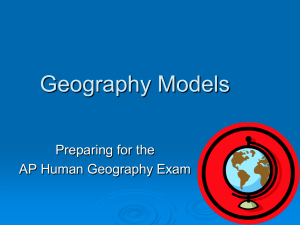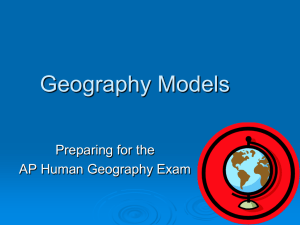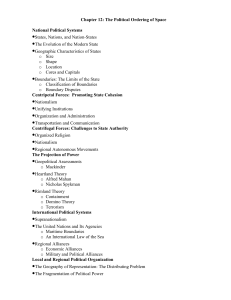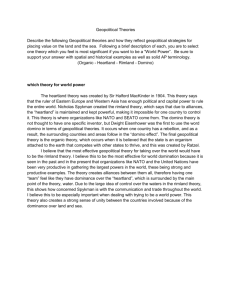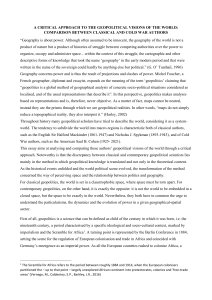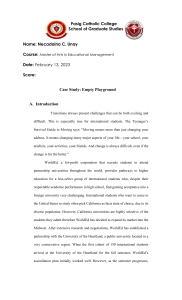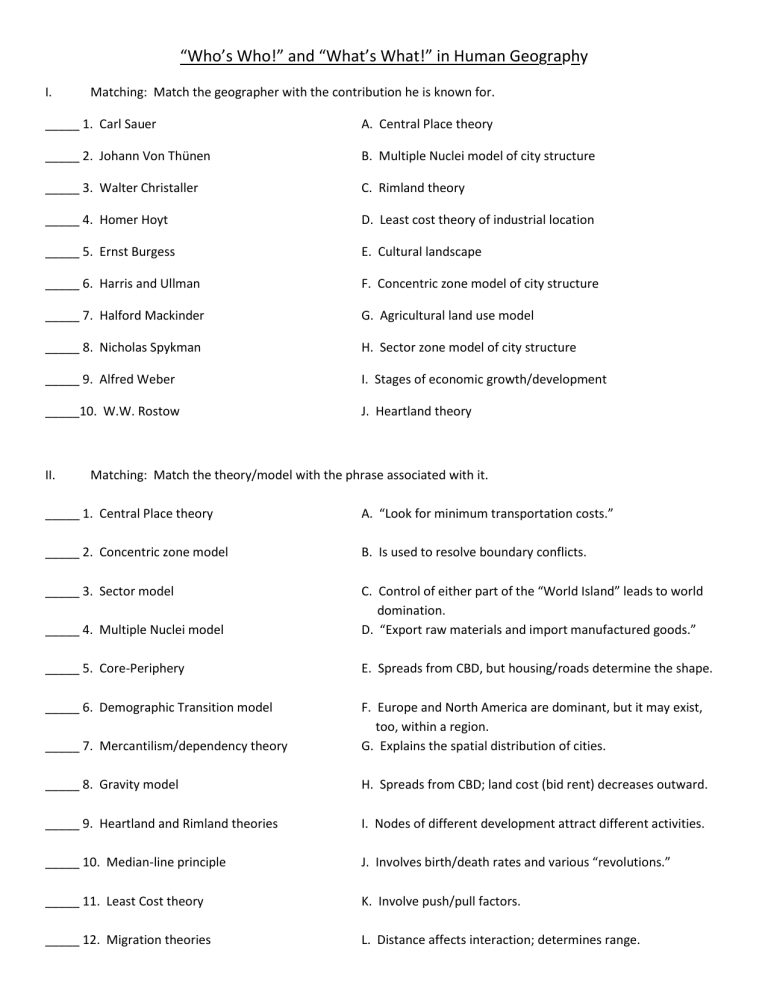
“Who’s Who!” and “What’s What!” in Human Geography I. Matching: Match the geographer with the contribution he is known for. _____ 1. Carl Sauer A. Central Place theory _____ 2. Johann Von Thünen B. Multiple Nuclei model of city structure _____ 3. Walter Christaller C. Rimland theory _____ 4. Homer Hoyt D. Least cost theory of industrial location _____ 5. Ernst Burgess E. Cultural landscape _____ 6. Harris and Ullman F. Concentric zone model of city structure _____ 7. Halford Mackinder G. Agricultural land use model _____ 8. Nicholas Spykman H. Sector zone model of city structure _____ 9. Alfred Weber I. Stages of economic growth/development _____10. W.W. Rostow J. Heartland theory II. Matching: Match the theory/model with the phrase associated with it. _____ 1. Central Place theory A. “Look for minimum transportation costs.” _____ 2. Concentric zone model B. Is used to resolve boundary conflicts. _____ 3. Sector model _____ 4. Multiple Nuclei model C. Control of either part of the “World Island” leads to world domination. D. “Export raw materials and import manufactured goods.” _____ 5. Core-Periphery E. Spreads from CBD, but housing/roads determine the shape. _____ 6. Demographic Transition model _____ 7. Mercantilism/dependency theory F. Europe and North America are dominant, but it may exist, too, within a region. G. Explains the spatial distribution of cities. _____ 8. Gravity model H. Spreads from CBD; land cost (bid rent) decreases outward. _____ 9. Heartland and Rimland theories I. Nodes of different development attract different activities. _____ 10. Median-line principle J. Involves birth/death rates and various “revolutions.” _____ 11. Least Cost theory K. Involve push/pull factors. _____ 12. Migration theories L. Distance affects interaction; determines range.
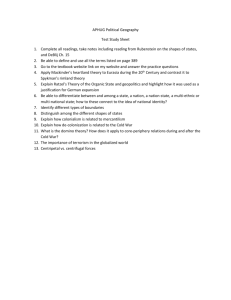
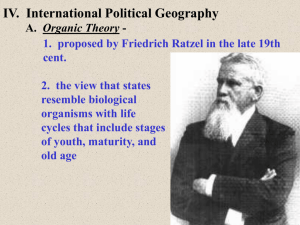
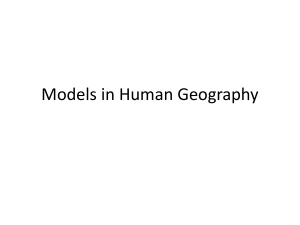
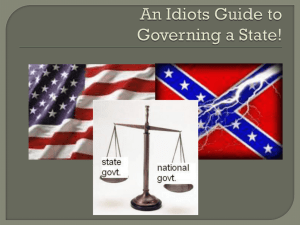
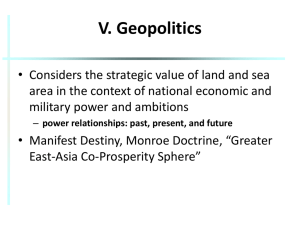
![Model_and_Theory_Chart[1]](http://s3.studylib.net/store/data/008565077_1-f7a3d3b1b3bb86c6e31ff39e95c26da5-300x300.png)
